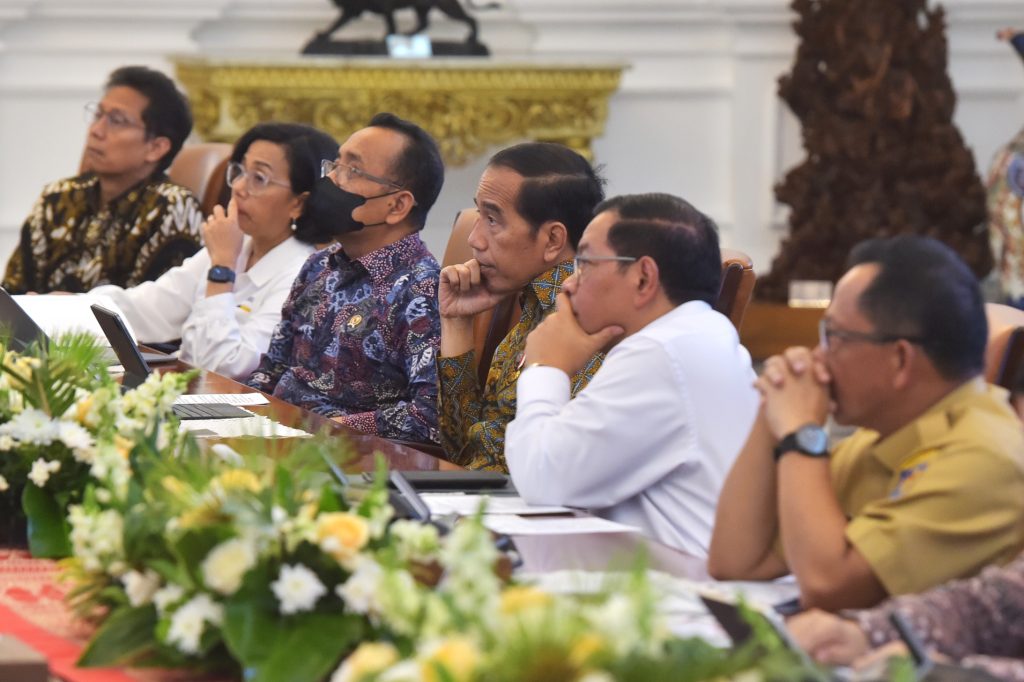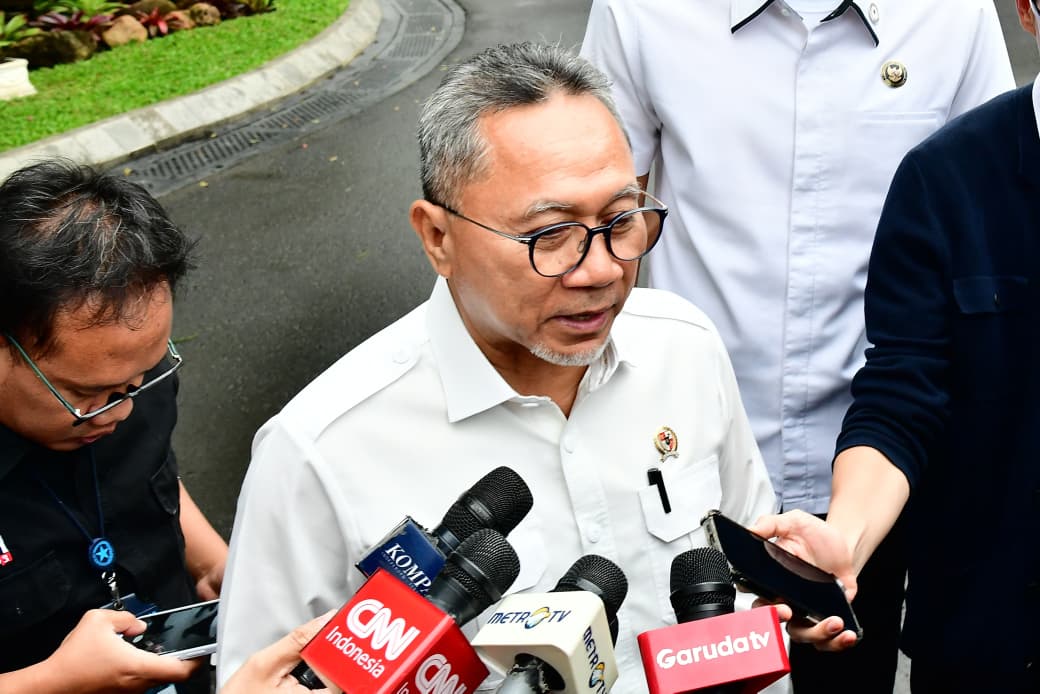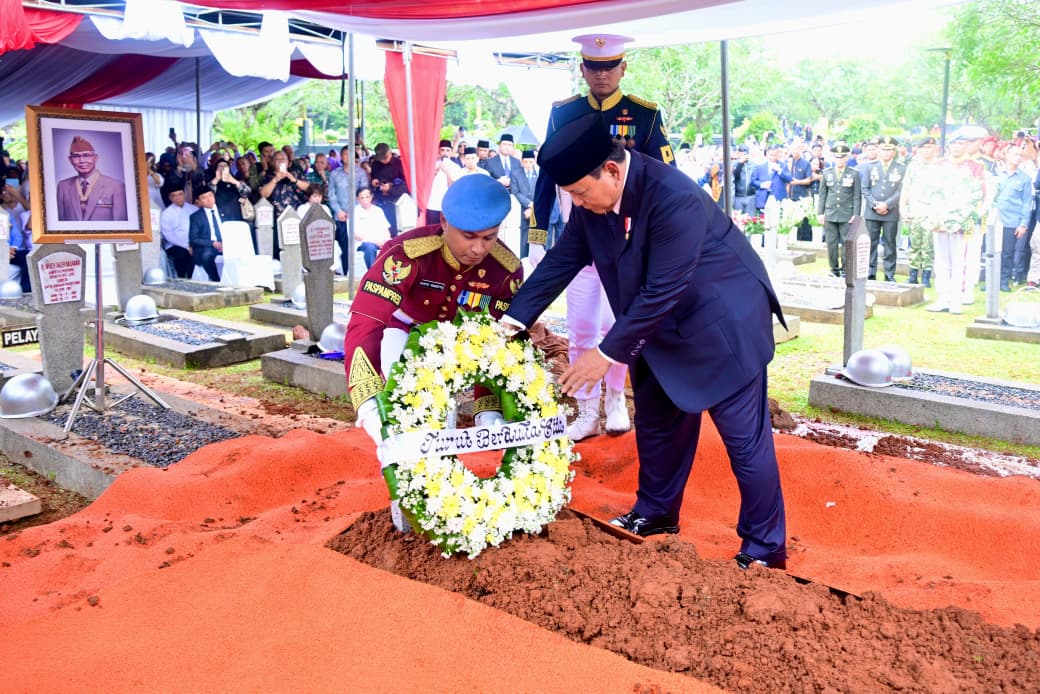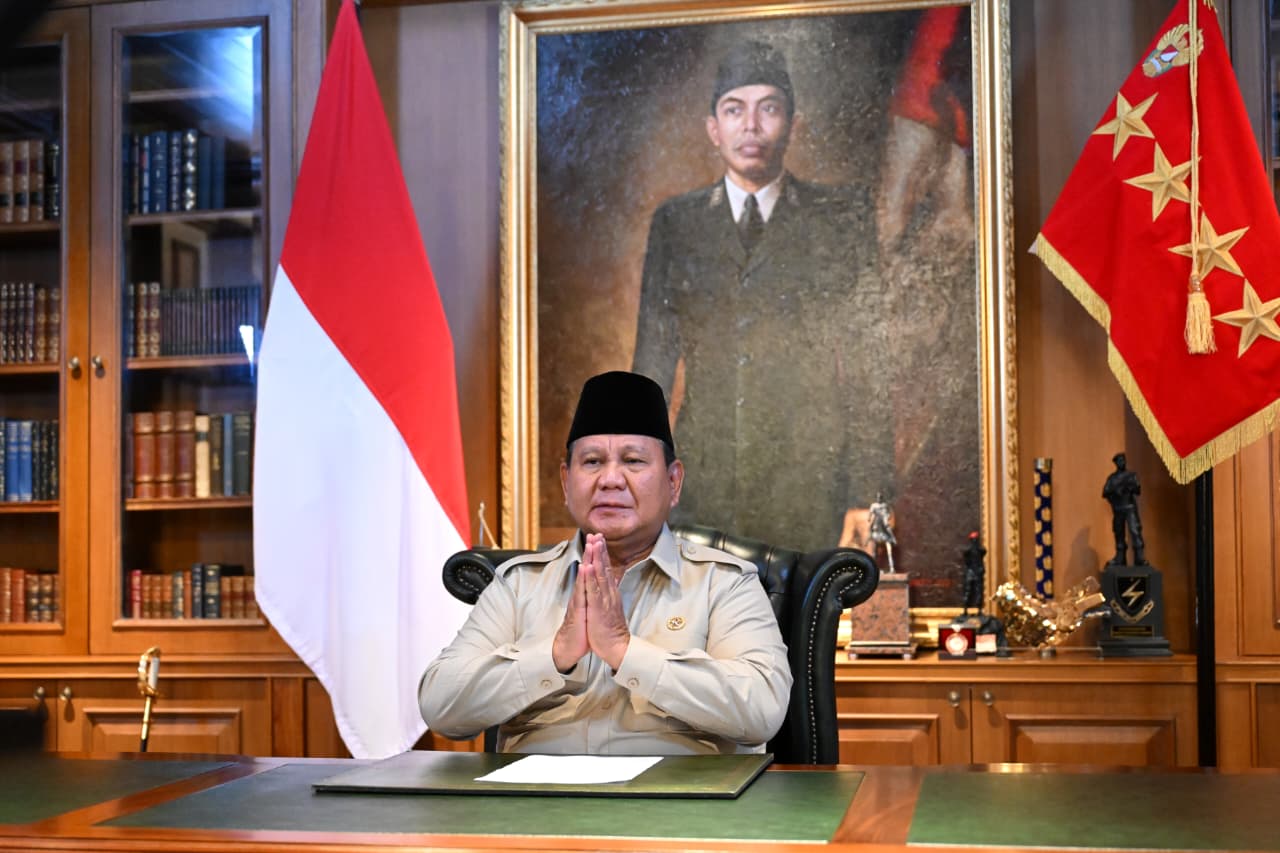President Jokowi Calls for Straightforward, Impactful Bureaucracy

President Jokowi leads a limited meeting at the Merdeka Palace, Jakarta, Monday (06/12). (Photo by: PR of Cabinet Secretariat/Agung)
President Joko “Jokowi” Widodo has called for bureaucratic reforms to create impactful, straightforward, agile, and fast bureaucracy.
The statement was made by the President during a limited meeting on measures to boost digital transformation and integrated services at Merdeka Palace, Jakarta, Monday (06/12).
In order to create an agile bureaucracy, the Government through Ministry of State Apparatus Empowerment and Bureaucratic Reforms has scrapped position classification from 3,414 to three groups of position and simplified bureaucracy in the personnel sector.
Speaking after the meeting, Minister of State Apparatus Empowerment and Bureaucratic Reforms Abdullah Azwar Anas said that each state apparatus can move from one group of position to others.
“We reported to the President that the National Civil Service Agency (BKN) also have simplified business processes for promotion from 14 to 2. Processes for retirement have been also simplified from 8 to 3, while stages for mutation also declined from 11 to 3. The President expressed hope that those simplifications can be implemented by related ministries/institutions, particularly Ministry of State Apparatus Empowerment and Bureaucratic Reforms,” he said.
The Government has also simplified regulations on state civil apparatus from 1,000 regulations to 1 Government Regulation. Out of 766 problem inventory list (DIM), the Government has adjusted it to only 48 DIMs on dismissal, appeals, and employee professional corps and 85 DIMs related to welfare.
The Minister also revealed that his Ministry has also simplified bureaucratic reforms assessment parameters from 259 components to 26 components, while expressing hope that excellent bureaucratic reforms can contribute to poverty alleviation and boost investment.
According to the Minister, President Jokowi has signed the regulation on national SPBE architecture that will continue to adopt digital public infrastructure (DPI) concept.
“This concept which consists of payment, digital ID, and data exchange has become a trend in many countries,” he said, adding that the SPBE will not prioritize development of new applications since there are already thousands of digital-based government service applications.
Therefore, the SPBE, he added, will be implemented in line with the signing of related Presidential Regulations. (TGH/UN) (RAS/EP)








